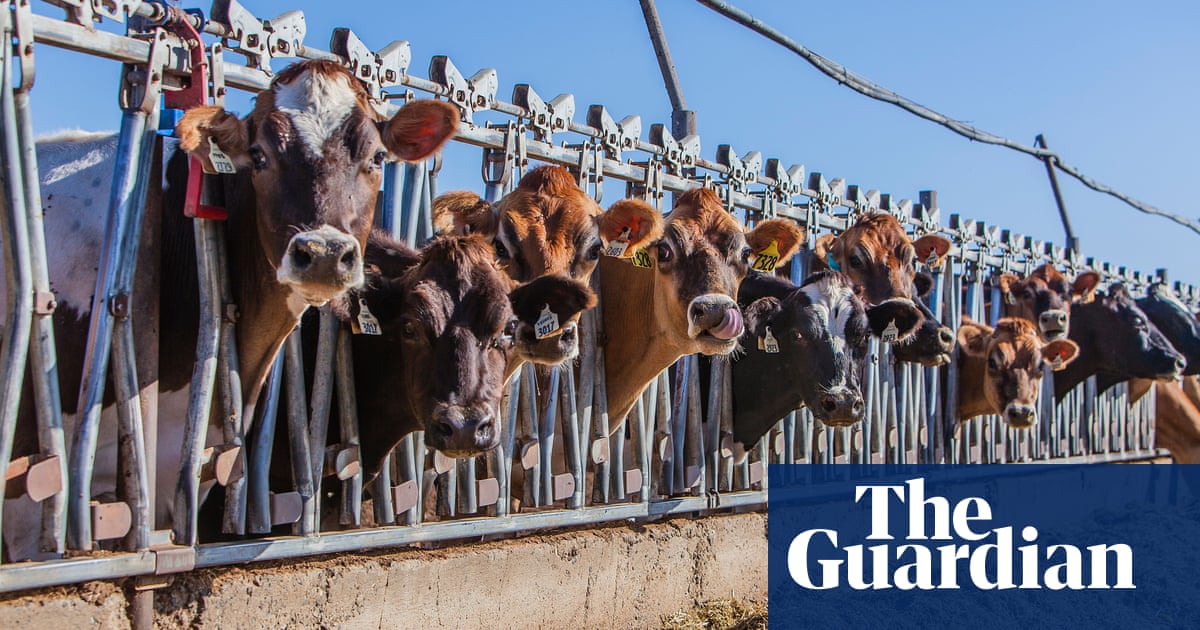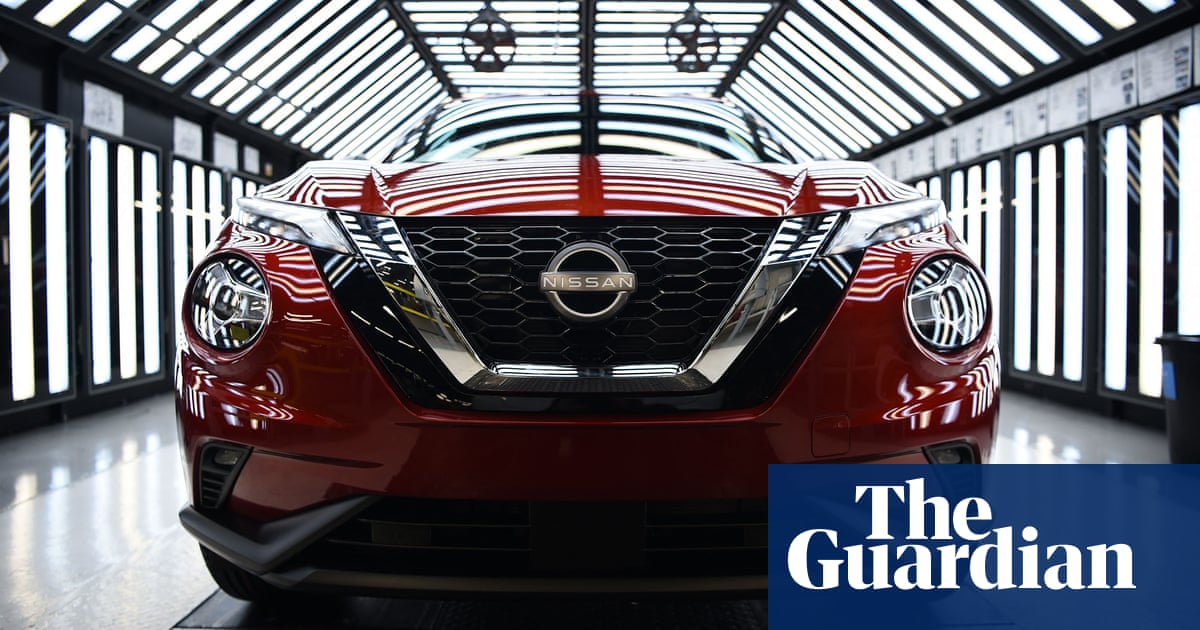
British farmers must reduce their production of meat and dairy by a third in the next 10 years if scientific advice on limiting greenhouse gas emissions is to be met, the conservation charity WWF has said.
Even greater cuts may be needed to the UK’s pig herds and poultry flocks, because of the imported feed they eat, and people will need to eat much less meat than they do today, the charity warned. But the result would be lower greenhouse gas emissions, a countryside with more wildlife and flourishing nature, and better health, according to the report.
Tanya Steele, chief executive of WWF, said: “If we are serious about tackling the twin threats of climate change and nature loss, farming and land use can’t be an afterthought. Many UK farmers are already using their skills and expertise to produce food as sustainably as possible, but they won’t be able to fix a broken system on their own.”
Livestock are a major source of greenhouse gas emissions, from the methane they produce and through the carbon associated with the feed they eat. WWF said the UK’s imports of soy for animal feed must be cut by about a fifth by 2030, as it is associated with deforestation and the overuse of fertiliser overseas.
Livestock are also associated with air pollution, from the ammonia that comes from their manure, which the government has vowed to tackle.
Farmers defended the UK’s livestock production as lower carbon than overseas alternatives, however. Stuart Roberts, deputy president of the National Farmers’ Union, said: “Our farmers can deliver the necessary environmental and climate benefits while maintaining domestic food production, including the production of nutritious meat and dairy, and it’s important that we do so. With more than 90% of UK households still wanting to buy high quality red meat and dairy, British products are often the most sustainable options.”
He said the UK’s climate was well suited to the production of beef and dairy products, and emissions from meat and dairy in the UK were less than half the global average. “If we reduced sustainable production here, it would only export our carbon footprint to countries which don’t meet our own high environmental standards, and risk seeing food imports reduced to standards that would be illegal here,” he added.
George Dunn, chief executive of the Tenant Farmers Association, rejected the need for drastic cuts to UK meat and dairy production: “Of the UK’s CO2e emissions, only 10% are emitted by UK agriculture. The bulk of UK emissions come from transport and energy accounting for over half of total emissions. With UK agriculture accounting for over two-thirds of the UK landmass, its carbon emissions are already incredibly low by comparison to other land uses. If 70% of the landmass produces 10% of the emissions it must mean that the remaining 30% produces 90% of the emissions. Every acre of land in agriculture is already less polluting by a factor of 20 in comparison to every acre of land in another sector.”
He added: “The vast majority of farmers understand the responsibility on them to both produce great food and as custodians of the environment. Our livestock farmers manage carbon in their soils on our behalf every day of the week and deserve our support, not our criticism. In fact, we should be eating more meat and dairy products from UK sources to offset what we import to reduce our carbon footprint.”
Rob Percival, head of food and policy at the Soil Association, said British households should reduce their meat consumption but buy higher quality meat. “Nature-friendly, agroecological farming can feed a growing population, but only if we eat less and better meat, ensuring what we do eat is high welfare, so that we can eliminate intensive animal farming and all the risks it poses to animal welfare, habitats for wildlife, and human health,” he said.
He added that grazing cattle could support healthy soils and nature, but that big reductions in the intensive production of poultry were needed, as cheap chicken production was driving river pollution in the UK, as well as deforestation in South America through imported soy.
He called for an end to post-Brexit trade deals that would open the door to low-welfare food with a high carbon footprint.
Vicki Hird, head of sustainable farming at the campaigning organisation Sustain, said the government must take a lead in making British farming more sustainable, by taking a “less but better” approach to meat. “The government could help by incentivising the production of sustainable, pasture-fed beef and only choosing less but better meat and more plants in public procurement contracts. The government spends £2bn a year on food and could be a lot smarter and do a lot more good with what it buys.”
Food waste is also a major problem, and needs to be halved by 2030, according to the WWF report. Efforts to cut food waste in households appeared to bear fruit during the Covid-19 lockdowns, but supermarkets and their rejection of “imperfect” but edible food are still major causes of waste.
The report also called for big reductions in the use of artificial fertiliser, through using precision techniques and ending the use of nitrogen fertiliser where possible, in favour of natural alternatives. Fertiliser prices have risen strongly in recent months, owing to high energy prices.












